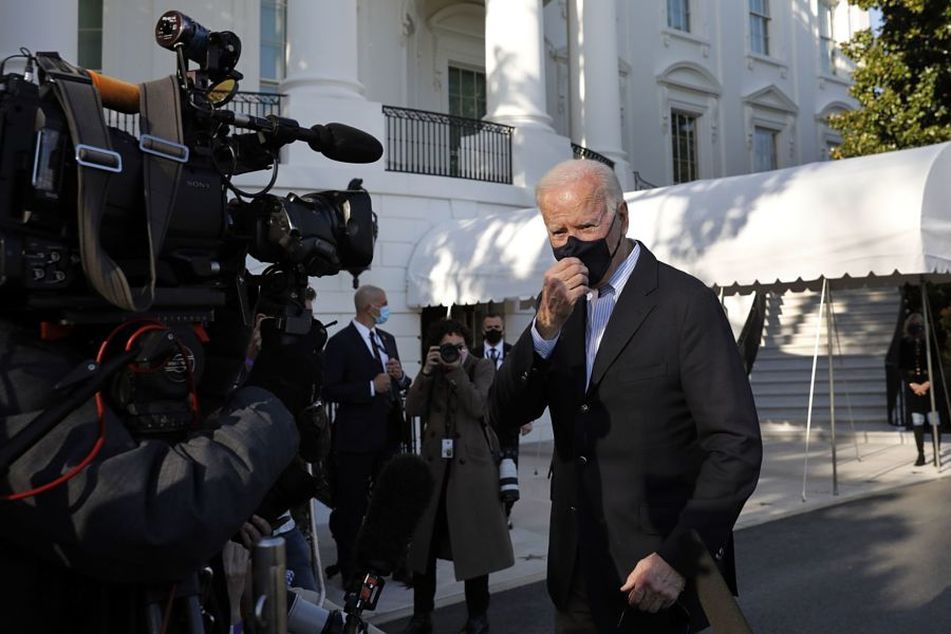Biden tax proposal draws ire from financial advisers

The idea of hiking taxes on capital gains from the current top rate of 23.8% is viewed by some as a trial balloon to test levels of support and resistance. The top tax rate would apply to those with annual incomes of at least $1 million, which is about 500,000 American taxpayers.
A leaked proposal for a 43.4% capital gains tax on the rich has the financial planning industry expressing fresh criticism of the Biden Administration and the far-left forces seen as driving such policies.
“If you really wanted to encourage taxable transactions and economic growth you would lower the capital gains tax, not raise it,” said Jim Iuorio, managing director at TJM Institutional Services.
“This is virtue signaling to let the Biden Administration show they are against the wealthy,” he added. “In this particular instance, the evidence is overwhelming; they think it’s more important to send that message.”
The idea of hiking taxes on capital gains from the current top rate of 23.8%, which was leaked to a few news outlets on Thursday, is viewed by some as a trial balloon to test levels of support and resistance.
“I think the actual number will come in closer to 30%, which is still a pretty drastic increase,” said Benjamin Barnhart, founder of Barnhart Wealth Management.
The top tax rate would apply to those with annual incomes of at least $1 million, which is about 500,000 American taxpayers.
“I don’t have any clients that will be impacted,” Barnhart said. “But if a higher rate does pass, it could create a bunch of selling before year-end.”
David Pettus, founder of Blue Rock Capital, who was already migrating client portfolios toward cash in anticipation of a near-term stock market pullback, used the news of President Joe Biden’s latest tax push to protect client portfolios even further.
“Yesterday I put my clients into approximately 92% cash, on average,” he said. “I have been moving in this direction for a few days now and the announcement of the Biden Administration’s tax intentions prompted me to complete this move.”
The initial reaction from the stock market on Thursday was a 0.7% decline, representing the biggest drop in a month by the S&P 500 Index. But the benchmark was up almost 1% in mid-day trading Friday.
Dan Herron, principal at Elemental Wealth Advisors, said the stock market is reacting to a potential tax hike that “discourages the sale of capital assets to put more money into other places.”
“Too many business owners would be impacted because people won’t want to sell,” he added. “I’ll be very surprised if they get this through, considering a lot of people in Washington are very well-off and would take a bigger tax hit because of this.”
Paul Schatz, president of Heritage Capital, described the higher tax rate as an “idiotic proposal” that is “dead on arrival, because they won’t be able to get all 50 Democratic senators to vote for this.”
While he doesn’t believe such a proposal would be enough to throw the economy into recession, Schatz does describe it as a “significant headwind, and illogical.”
“The Biden Administration cannot play the economic crisis theme on one hand and on other hand say the economy is so strong we can raise taxes,” he said. “If they truly believe the economy is strong enough to raise taxes and have this insane tax proposal, then certainly we don’t need more stimulus.”
Mike Caligiuri, founder and chief executive of Caligiuri Financial, also challenged the logic of a proposal that “can be expected to disincentivize investments in the private sector and further encourage spending for capital consumption instead of capital formation.”
“If one operates under the assumption that the government is better at allocating resources than the free market, I guess higher taxes would be a good thing,” he added.
Jeff Farrar, founder of Procyon Partners, described the proposal as a “foolish progressive idea, that will negatively impact clients, equities, and the markets overall.”
“It raises more revenue for [Washington] D.C., but that’s always a little ephemeral, because if anyone has the ability to manage their taxes, it’s the wealthy,” he said.
Farrar gives the capital gains hike proposal a “chance of passing, because it’s targeted at those people the progressives don’t really like.”
Larry Luxenberg, principal at Lexington Avenue Capital Management, also sees it as another obstacle the wealthy will be able to navigate.
“As proposed, this change would affect a tiny sliver of the population, but the final rule could end up affecting more people,” he said. “But, unlike regular wages, people have a lot of discretion on when and how they take capital gains.”
Nadine Marie Burns, president and chief executive of A New Path Financial, said the higher capital gains tax will naturally spread beyond the ultra-wealthy to include the “aspiring middle class.”
“Think about being a doctor; you spent years going to school, then working to grow a practice for 30 years and paying off student loan debt, then you sell that practice to lose half of what you built in taxes,” she said.
Burns said a construction company owned by a husband and wife, for example, could suffer a similar fate if they eventually decide to sell the business to their employees. “Will they have to sell for more just to pay taxes on the sale, which in turn saddles those new entrepreneurs with a huge cost before they see their American dream?” she said. “This tax is not just about securities; it is about the growth of this American economy.”
Learn more about reprints and licensing for this article.








